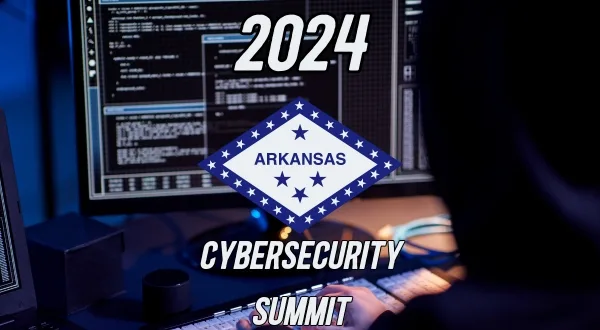
State and federal officials gathered in Little Rock on Monday for the 2024 Cybersecurity Summit. The event, hosted by the Arkansas Attorney General’s Office and Forge Institute, was geared towards creating a plan for combating and preventing large-scale threats to national security posed by foreign adversaries. This comes after the recent Chinese hack of American telecom giants AT&T, Verizon, and Lumen.
At the summit, speakers emphasized the increasing occurrences of cyberattacks that not only affect the individual American, but critical infrastructure as well. According to data from the FBI, in 2023 alone Arkansans lost over $46 million dollars to cyberattacks. The trend in the data shows these cyberattacks increasing.
Last year on the national level, cyberattack losses tripled from 2020, costing Americans $12.5 billion as a result of everything from data breaches to extortion and investment scams.
Though the individual American has suffered from these attacks, officials also have concern over the vulnerabilities in our critical infrastructure.
“The Chinese, the Russians, the North Koreans, Iraniansthere’s nothing they want more than chaos in this country,” said Arkansas Attorney General Tim Griffin.
The Attorney General’s Office reports that in 2023 over 130 cyberattacks occurred on the state and local level in Arkansas. One of the cyberattacks managed to affect 72 of the state’s 75 counties for a few days, preventing them from transacting normal business such as collecting taxes, filing deeds, or registering vehicles.
The summit also discussed the affects on agricultural infrastructure.
“I’ve worked with our other congressmen and Senator Boozman to make sure the federal government is also taking the threat to the agriculture industry seriously, just like they do, for instance, to our financial industry or telecommunications industry,” said Senator Tom Cotton (R-Arkansas).
Cotton, as well as other attendees at the summit, expressed growing concerns about cyberattacks targeting the upcoming election.
“I worry about cyberattacks from other countries that don’t necessarily affect the machinery of elections, like voter registration rolls, but rather critical infrastructure-turning off electricity on election day in a major American city,” Cotton said. “I think the federal government needs to do a better job of policing those threats to ensure that we don’t have an election thrown into chaos.”
Cotton and other lawmakers are advocating not only creating a focus towards enhancing America’s defensive cybersecurity capabilities, but also offensive.
“Our adversaries have some of the best hackers in the world. We’ve got to have the best as well to make sure that our adversaries know that anything they do to us, we can hit back much harder,” Cotton said.
A sentiment shared by nearly every speaker at the summit is the call for the individual to have an increased situational awareness to the increased risk of cybersecurity threats in the current geopolitical climate.
“It’s really important that every Arkansan understand basic best practices about password security, about clicking on links that they don’t expect, about unexpected emails or text messages,” Cotton said.
“We all must fight this threat together, and it’s not a threat of something that will come,” Griffin said, “the threat is here.”
WebReadyTM Powered by WireReady® NSI










